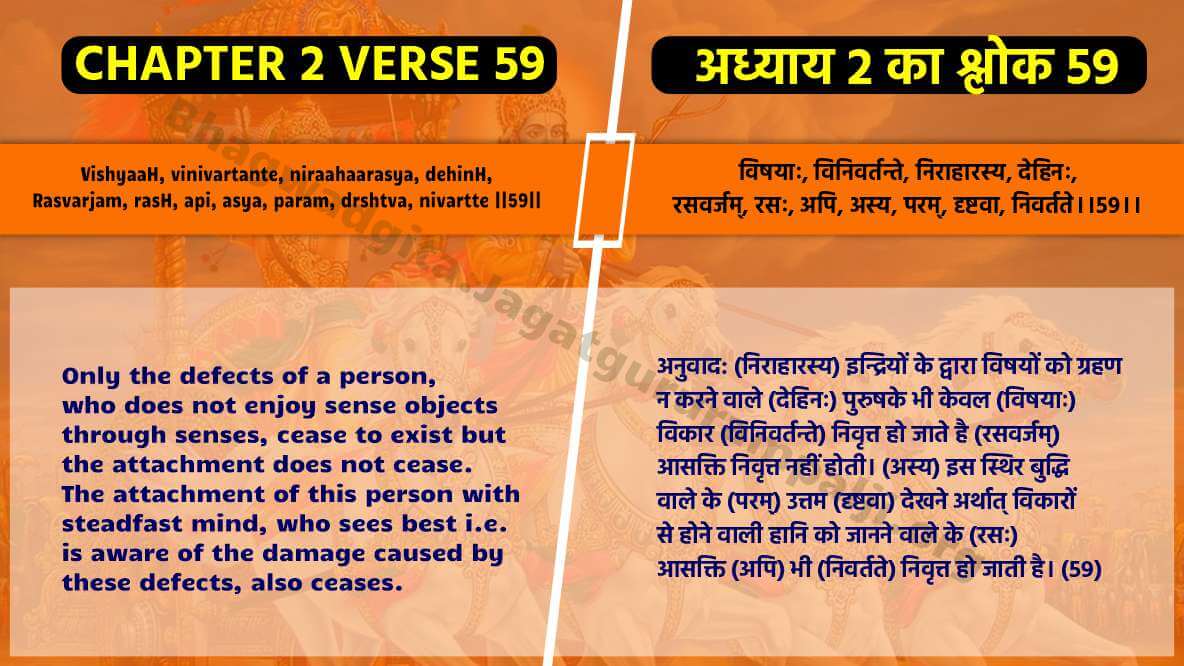
VishyaaH, vinivartante, niraahaarasya, dehinH,
Rasvarjam, rasH, api, asya, param, drshtva, nivartte ||59||
Translation: (Niraahaarasya) one who does not enjoy sense objects though senses (dehinH) person’s also only (vishyaaH) defects (vinivartante) cease to exist (rasvarjam) but the attachment does not cease (asya) this person with a steadfast mind (param) best (drshtva) who sees i.e. is aware of the damage caused by these defects (rasH) attachment (api) also (nivartte) ceases. (59)
Translation
Only the defects of a person, who does not enjoy sense objects through senses, cease to exist but the attachment does not cease. The attachment of this person with steadfast mind, who sees best i.e. is aware of the damage caused by these defects, also ceases.
विषयाः, विनिवर्तन्ते, निराहारस्य, देहिनः,
रसवर्जम्, रसः, अपि, अस्य, परम्, दृष्टवा, निवर्तते।।59।।
अनुवाद: (निराहारस्य) इन्द्रियोंके द्वारा विषयोंको ग्रहण न करनेवाले (देहिनः) पुरुषके भी केवल (विषयाः) विकार (विनिवर्तन्ते) निवृत्त हो जाते हंै (रसवर्जम्) आसक्ति निवृत्त नहीं होती। (अस्य) इस स्थिर बुद्धि वालेके (परम्) उत्तम (दृष्टवा) देखने अर्थात् विकारों से होने वाली हानि को जानने वाले के (रसः) आसक्ति (अपि) भी (निवर्तते) निवृत्त हो जाती है। (59)
